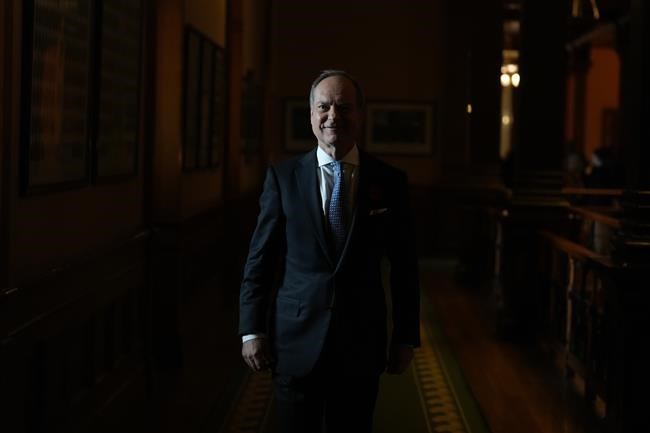TORONTO — Ontario is projecting that it will end this fiscal year with a $4.5-billion deficit, while also so far hanging onto a large contingency fund.
Finance Minister Peter Bethlenfalvy released the province's third-quarter finances Monday, the last major fiscal update he's set to provide before introducing the next budget by the end of March.
The current deficit projection for 2023-24 is $4.5 billion, which is $1.1 billion lower than the forecast in Bethlenfalvy's fall economic statement, but still significantly higher than the $1.3 billion he was eyeing at the time of last year's budget.
Bethlenfalvy said the $1.1-billion improvement is due to higher revenue, including money from taxes and transfers from the federal government, and lower interest costs on the province's debt due to rosier interest rate forecasts.
"I'm pleased to report that inflationary pressure has eased somewhat on households across the province, providing some much needed relief to millions of Ontarians and their families," he said at a news conference.
"That said, high interest rates from the Bank of Canada as well as uncertainty around consumer price inflation continue to pose risks to Ontario's economic outlook."
Ontario has added some new spending since the fall economic statement, including $1.7 billion to the health sector and more than $700 million in supports for the city of Toronto.
Bethlenfalvy did not provide an exact amount, but said part of that $1.7 billion was being used for retroactive payments for health-care workers to compensate them for the government's wage restraint legislation known as Bill 124.
The $1.7 billion, however, does not include funding to help hospitals that are warning of facing operating deficits, but Bethlenfalvy said that money is coming.
"They will be receiving significant amounts of funding in the very near term as we roll that out," he said.
The province is using its contingency fund to pay for some of the new expenses since the fall economic statement, and the fund that sat at $5.4 billion at the time of the fall economic update is now at $3.3 billion.
This report by The Canadian Press was first published Feb. 12, 2024.
Allison Jones, The Canadian Press
